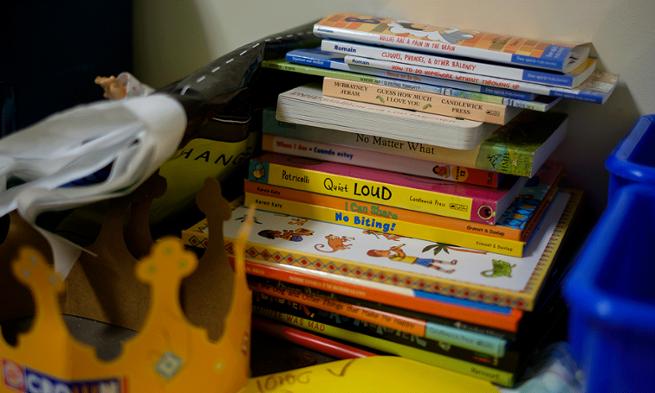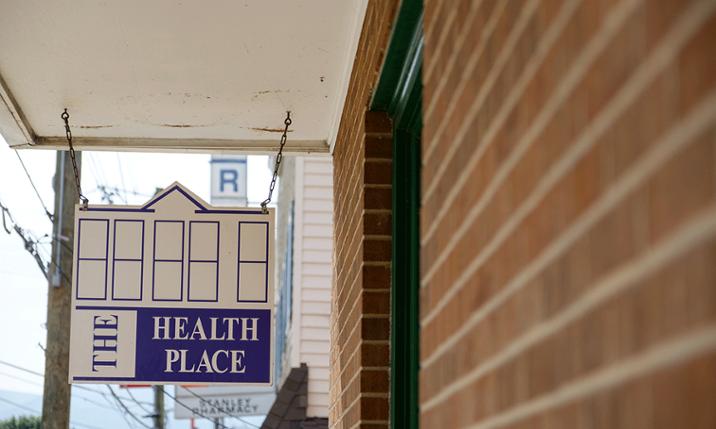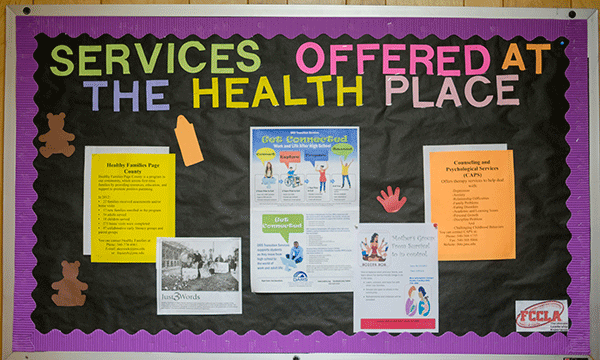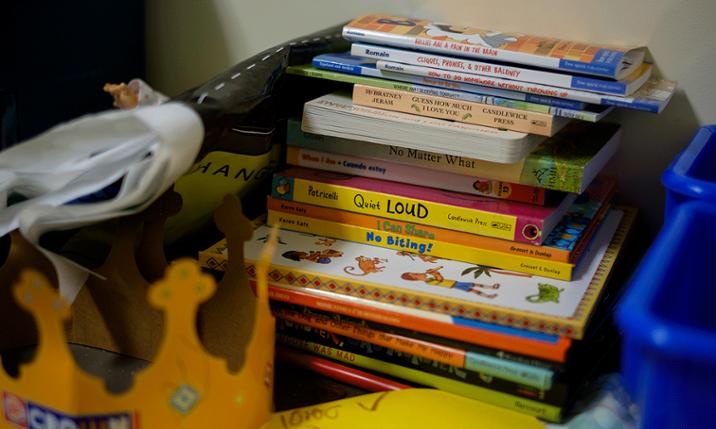Healthy Families
Health and Behavior
SUMMARY: Healthy Families Page County provides education, resources and support for families in Page and Shenandoah counties who have been identified as being at risk for poor parenting outcomes. In 2001, a community coalition identified the need, and JMU's Institute for Innovation in Health and Human Services, together with faculty and students, have engaged with the community to address the need since 2002.
Connecting the campus with the community and engaging students in interprofessional learning experiences
By Jim Heffernan ('96)
Visit Madison magazine online to download the Madison app and view this and other stories on your tablet device for an immersive, interactive experience!

Healthy Families Page County provides education, resources and support for families in Page and Shenandoah counties who have been identified as being at risk for poor parenting outcomes. In 2001, a community coalition identified the need, and JMU’s Institute for Innovation in Health and Human Services, together with faculty and students, have engaged with the community to address the need since 2002.
'‘Our program makes them realize that somebody cares and that there are ways you can do things that will make your life better and your child’s life better.’ — Yvonne Frazier, Healthy Families program manager
Page County residents are screened for participation in the program based on risk factors including whether the parent is single; was late in receiving prenatal care; has a history of mental health issues or substance abuse, insufficient employment, income, or support; and other factors. Services begin prenatally or shortly after birth, and are offered for five years.

Healthy Families Page County is located at The Health Place in Stanley, Virginia. Emily Akerson, coordinator of clinical and interprofessional initiatives at IIHHS and a former nurse practitioner in Page, oversees the program, including grant writing.
One of Healthy Families’ signature services are home visits that provide information and guidance on child development, parent-child relationships, nutrition, health and safety, and other issues important to the child’s well being. Healthy Families also provides referrals to local health care and social services agencies as well as free supplies and materials to assist families in creating a safe, nurturing home environment.
“We’re really about helping families become more self-sufficient and empowered,” says program manager Yvonne Frazier, a Shenandoah County native who has been involved with Healthy Families Page County since 2010.
At the outset, participants receive four home visits per month, but that number decreases over time. They must go three months without a visit and without a crisis before they can “graduate” from the program.
“Many of these families are used to being under the radar,” Frazier says. “They don’t have much education or experience beyond their home county. They’ve never had set goals, and they really can’t see much of a future for themselves. Our program makes them realize that somebody cares and that there are ways you can do things that will make your life better and your child’s life better.”
The program provides field and clinical placement opportunities for social work, nursing and psychology majors, engaging students in interprofessional learning experiences that address the priority health needs in the community.
Healthy Families programs in Page and Shenandoah counties provide field and clinical placement opportunities for social work, nursing and psychology majors, resulting in over 2,200 hours of transformative student learning experiences during 2014-15. Like all IIHHS programs, Healthy Families connects the campus with community and engages students in interprofessional learning experiences that address priority health needs. In addition to supporting families through home visiting, students participate in Interprofessional Family Reviews in which home visitors consult with advanced-practice nurses and clinical psychology faculty and students about family challenges. Program leadership is in conversation with faculty from other majors so that the needs of families can be more fully addressed through student and faculty involvement.

Last spring Frazier formed the Collaboration for Community and Family Empowerment, in which students from various disciplines were involved in projects ranging from improving the quality of rural day care facilities to assisting free clinics and food pantries.
Frazier and IIHHS leadership want to continue to build partnerships with neighboring counties while at the same time giving JMU students valuable field experience. “We’re creating not just engaged students, but empathetic adults,” Frazier says.
